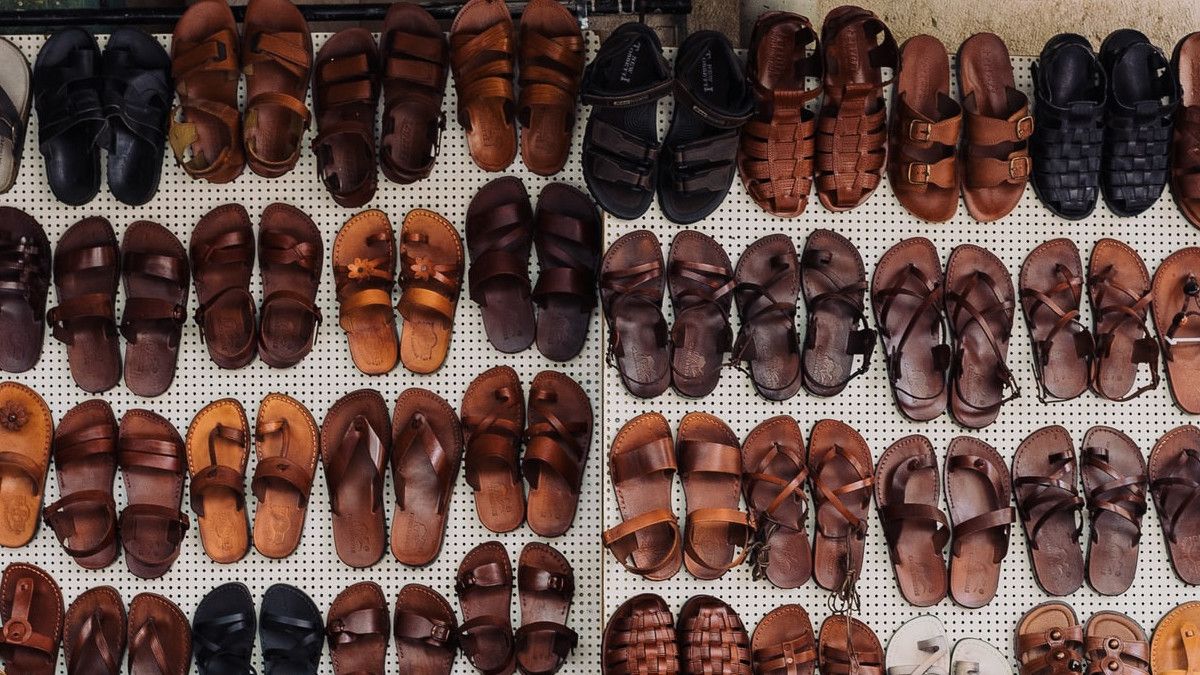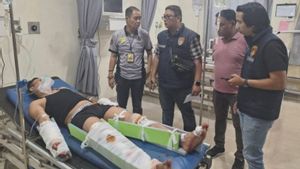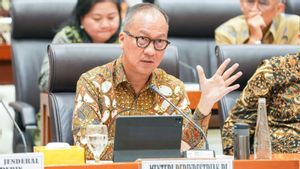JAKARTA - It is estimated that the labor-intensive footwear sector can only retain employees without layoffs for three months. The reason is, due to the corona virus pandemic or COVID-19, the company does not have a permanent income.
Executive Director of the Indonesian Footwear Association (Aprisindo) Firman Bakri said, in the midst of the COVID-19 pandemic, there are still many export-oriented companies that are still completing the remaining orders. Thus, the number of employees working is still there.
"In general, the industry's resistance to retaining employees without laying off workers during the COVID-19 pandemic without income is for the next three months," he said, in a written statement received by VOI, in Jakarta, Friday, April 24.
Based on the results of a survey conducted at Aprisindo member footwear companies, Firman revealed, 37 percent of companies were only able to retain employees for three months.
Then, continued Firman, 12 percent of the companies were able to survive for one month. Then, 12 percent lasted two months and as many as 13 percent were able to survive four months.
"Companies that are able to survive for six months and more than six months each get a percentage of 13 percent," he said.
However, Firman explained, the ability of business actors to retain their employees for the past three months was only able to pay wages. That, does not include the obligation for Eid al-Fitr holiday allowances (THR).
Firman explained, until now 87 percent of employees are still working normally. Meanwhile, 6 percent of contract employees have not extended their work contract.
"As many as 6 percent of permanent employees have been sent home without getting allowances and salaries. Only 1 percent of permanent employees have been sent home with allowances," he explained.
Meanwhile, according to Firman, the magnitude of the difference between the number of workers who are still working and those who have been sent home is influenced by the disparity factor in the size of the company. Among them, there were also quite a large number of respondents between small companies and large export-oriented companies.
"Even though starting from June 2020 there is still no certainty whether there is an order for export or not," he said.
Constrained Raw Materials
The pressure on the footwear industry is none other than a matter of raw materials. As is known, due to the COVID-19 outbreak, several raw material-producing countries in the world issued regional quarantine or lockdown policies, so that 70 percent of the domestic footwear industry lacks raw materials.
Firman said, due to bottlenecks of raw materials, most of the current industrial capacity is only used 21 percent to 45 percent. Meanwhile, said Firman, factories that were still in production during the pandemic with a capacity of around 72 percent were large industries which were export-oriented, with a workforce of over 5,000 people.
"A number of industries are still operating, raw materials are a disturbing problem," he said.
Based on a survey of Aprisindo members, said Firman, it was recorded that 70 percent of industries experienced raw material problems and 30 percent had no problems. In addition, around 37 percent of companies complained about difficulties in importing raw materials. Meanwhile, during this pandemic, 36 percent of raw material suppliers closed.
Firman revealed, as many as 18 percent of the footwear industry also complained about an increase in prices and 9 percent had difficulty obtaining raw materials. Moreover, this condition is also exacerbated by the difficulty of exporting footwear products.
"20 percent of industry players admit to having few orders so that the business is getting worse. Meanwhile, as many as 80 percent of the industry sells their products abroad because of the regional quarantine or lockdown policy," he said.
Urging the Government
Firman revealed, the problem in the export market was due to a number of main export destination countries for the footwear sector, which also carried out a lockdown. The impact of this constraint is that uncertain income and high operating costs threaten the sustainability of the footwear business.
"Aprisindo urges the government to immediately provide a stimulus in order to save this labor-intensive sector. Such as tax incentives, licensing facilities and training assistance," he said.
Apart from that, said Firman, the government must also maintain the domestic market, especially through offline sales. The goal is to maintain added value in the distribution and labor-intensive sectors.
"The government can provide BPJS Health contributions so that they can be postponed but employees still get the benefits. Meanwhile, for employees who are sent home, they can be paid 50 percent of their wages. THR can be paid in installments or partially paid first," he said.
The English, Chinese, Japanese, Arabic, and French versions are automatically generated by the AI. So there may still be inaccuracies in translating, please always see Indonesian as our main language. (system supported by DigitalSiber.id)









